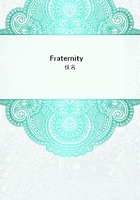
第36章
For on Saturdays Stephen almost always left the precincts of the Courts before three o'clock. Then, if he could induce his wife or daughter to accompany him, he liked to get a round or two in preparation for Sunday, when he always started off at half-past ten and played all day. If Cecilia and Thyme failed him, he would go to his club, and keep himself in touch with every kind of social movement by reading the reviews.
Thyme walked along with her head up and a wrinkle in her brow, as though she were absorbed in serious reflection; if admiring glances were flung at her, she did not seem aware of them. Passing not far from Hilary's, she entered the Broad Walk, and crossed it to the farther end.
On a railing, stretching out his long legs and observing the passers-by, sat her cousin, Martin Stone. He got down as she came up.
"Late again," he said. "Come on!"
"Where are we going first?" Thyme asked.
"The Notting Hill district's all we can do to-day if we're to go again to Mrs. Hughs'. I must be down at the hospital this afternoon."Thyme frowned. "I do envy you living by yourself, Martin. It's silly having to live at home."Martin did not answer, but one nostril of his long nose was seen to curve, and Thyme acquiesced in this without remark. They walked for some minutes between tall houses, looking about them calmly. Then Martin said: "All Purceys round here."Thyme nodded. Again there was silence; but in these pauses there was no embarrassment, no consciousness apparently that it was silence, and their eyes--those young, impatient, interested eyes--were for ever busy observing.
"Boundary line. We shall be in a patch directly.""Black?" asked Thyme.
"Dark blue--black farther on."
They were passing down a long, grey, curving road, whose narrow houses, hopelessly unpainted, showed marks of grinding poverty. The Spring wind was ruffling straw and little bits of paper in the gutters; under the bright sunlight a bleak and bitter struggle seemed raging. Thyme said:
"This street gives me a hollow feeling."
Martin nodded. " Worse than the real article. There's half a mile of this. Here it's all grim fighting. Farther on they've given it up."And still they went on up the curving street, with its few pinched shops and its unending narrow grimness.
At the corner of a by-street Martin said: "We'll go down here."Thyme stood still, wrinkling her nose. Martin eyed her.
"Don't funk!"
"I'm not funking, Martin, only I can't stand the smells.""You'll have to get used to them."
"Yes, I know; but--but I forgot my eucalyptus."The young man took out a handkerchief which had not yet been unfolded.
"Here, take mine."
"They do make me feel so--it's a shame to take yours," and she took the handkerchief.
"That's all right," said Martin. "Come on!"
The houses of this narrow street, inside and out, seemed full of women. Many of them had babies in their arms; they were working or looking out of windows or gossiping on doorsteps. And all stopped to stare as the young couple passed. Thyme stole a look at her companion. His long stride had not varied; there was the usual pale, observant, sarcastic expression on his face. Clenching the handkerchief in readiness, and trying to imitate his callous air, she looked at a group of five women on the nearest doorstep.
Three were seated and two were standing. One of these, a young woman with a round, open face, was clearly very soon to have a child; the other, with a short, dark face and iron-grey, straggling hair, was smoking a clay pipe. Of the three seated, one, quite young, had a face as grey white as a dirty sheet, and a blackened eye; the second, with her ragged dress disarranged, was nursing a baby; the third, in the centre, on the top step, with red arms akimbo, her face scored with drink, was shouting friendly obscenities to a neighbour in the window opposite. In Thyme's heart rose the passionate feeling, 'How disgusting! how disgusting!' and since she did not dare to give expression to it, she bit her lips and turned her head from them, resenting, with all a young girl's horror, that her sex had given her away. The women stared at her, and in those faces, according to their different temperaments, could be seen first the same vague, hard interest that had been Thyme's when she first looked at them, then the same secret hostility and criticism, as though they too felt that by this young girl's untouched modesty, by her gushed cheeks and unsoiled clothes, their sex had given them away. With contemptuous movements of their lips and bodies, on that doorstep they proclaimed their emphatic belief in the virtue and reality of their own existences and in the vice and unreality of her intruding presence.
"Give the doll to Bill; 'e'd make 'er work for once, the---" In a burst of laughter the epithet was lost.
Martin's lips curled.
"Purple just here," he said.
Thyme's cheeks were crimson.
At the end of the little street he stopped before a shop.
"Come on," he said, "you'll see the sort of place where they buy their grub."In the doorway were standing a thin brown spaniel, a small fair woman with a high, bald forehead, from which the hair was gleaned into curlpapers, and a little girl with some affection of the skin.